Chapter One
In the Beginning: 1960 to 1978
My full name is Peter Stephen Chapman and I was born at the Queen Victoria Maternity Hospital in Johannesburg, South Africa, just before midnight on 10 August 1960.
For my parents, Charles and Edwina Chapman, I was a second child and second son, having been preceded by my brother David on 11 January 1959. My father was a tradesman fitter and turner who worked in the Gold Mines at City Deep, and my mother was a bank clerk.
I spent a happy enough childhood growing up in Johannesburg, my parents providing me with two younger sisters, Heather in 1964 and Melanie in 1969, to complete our family of six.
My schooling began in January 1966, when I was but five years old. My parents first enrolled me at Kenilworth Junior School, where I spent three years before attending Townsview Primary School from 1969 to 1972. In 1973 I began my high school career at Forest High School in Kenilworth, a short walk from my home, where I remained until completing my schooling in December 1977, at the age of seventeen.
When I look back at it, I didn't give my National Service obligations any thought at all, while at school anyway. My friends and I all knew that we had to do National Service for two years in the armed forces, but as this was a requirement for all white male school leavers, I think it was more something we didn't discuss. Neither I nor my friends wanted to do it, but we were all resigned to the fact that it was virtually impossible to avoid, apart from emigrating to another country, or if you were found to be medically unfit for service.
In my own case, I had something of a family history of service in the military, with both my grandfathers having served their country during World War Two. My paternal grandfather, Paul Phillipus Chapman, signed up as a Sapper in the South African Army Engineer Corps in 1941, and was shipped to North Africa later that year. There he saw extensive active service until captured, along with the rest of the 2nd South African Division, when the Germans overran the garrison at Tobruk in June 1942. He spent the rest of the war as a prisoner, or an escaped prisoner interned in Switzerland, only returning to the Republic in 1944, and being discharged the following year.
My maternal grandfather, Benjamin John Jooste, joined the South African Air Force in 1942, having failed a medical examination on a previous attempt to join up. He was initially retained in various bases in the Republic but eventually transferred to No.26 Squadron in Takoradi, West Africa, where he served for over a year before being returned to South Africa. He was eventually given a discharge in 1945 on medical grounds.
My father had also been an Active Citizen Force volunteer, joining the SAAF in 1952 and volunteering for service with No.2 Squadron in Korea. He went to Korea as an airframe fitter in March 1953, with the last group of replacement ground crew, seeing out the last few months of the war and the post-Armistice wind down of the South African presence there. He was flown home in October 1953, one of the last group to leave, and bought himself out of the remainder of his contract in November, returning to civilian life and a job in the Gold Mines at City Deep, in Johannesburg.
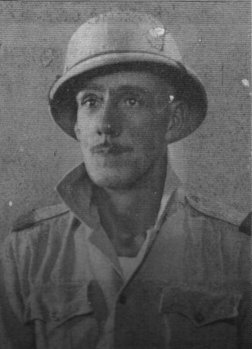
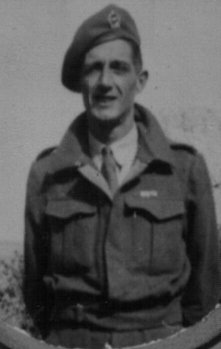
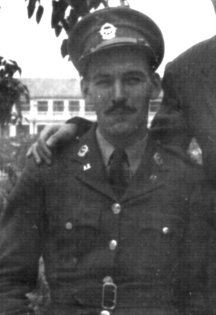
From left to right, my two grandfathers, Paul Chapman and Ben Jooste, and my father Charles Chapman.
In 1976 I was required to register for military service, which entailed completing a form and sending this off to Pretoria I think. I duly received my registration notice from the Defence Force, which included my service number, 76515600 BJ. The first two digits of the number indicated the year you were registered, and we later learned to tell how recent a recruit anyone was, by these first two digits in their service numbers. The last two letters also indicated your status in the military. For example, most permanent force members (those who had signed up voluntarily, making the military their career) had the suffix `PE' to their service numbers, while during my National Service period, mine was `BG', or Burgermag (Afrikaans, meaning `Citizen Force'). There were a few other suffixes, but these were unfamiliar to me personally and I don't quite know what they signified.
As I was only sixteen at the time, military matters were far from my mind and only loomed large again towards the end of 1977, my final year at school. This was when we received our call up papers from the Defence Force. When you registered at the age of sixteen, they asked about your various interests, hobbies, and skills. Your posting was supposed to reflect these, as much as this was at all possible, but in my experience the process could be very haphazard, to say the least. I will explain shortly.
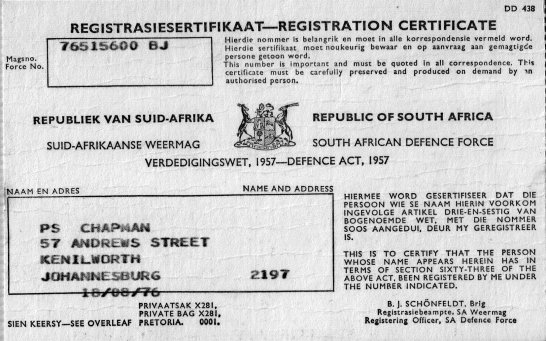
My registration certificate, containing my service, or Force number and advising that I had been registered for military service.
From an early age I had become involved with the St John's Ambulance Brigade, and had stayed in this organisation until I was sixteen, at which time other distractions (my girlfriend Sharon, who is now my wife) led me to terminate my membership. The Defence Force had obviously taken this into account, and I found that I had been called up on 5 July 1978, to the South African Medical Service, or SAMS as it was known, in Voortrekkerhoogte, just outside of Pretoria. There were two Defence Force intakes nationwide each year, one in January and the other in July, as the sheer number of conscripted men could not be trained or accommodated at once.
My brother David, eighteen months older than me, had finished his schooling at the end of 1976, but had avoided his call up in 1977 by enrolling at Witwatersrand University, to study medicine. If you enrolled for tertiary study at a university, your call up was deferred, at least until July of the following year, once the Defence Force had been notified by you in writing (complete with proof that you had enrolled). I don't believe that Dave had any interest in medicine really, and had signed up to study it more at the insistence of my father than anything else. After partying all year in 1977 instead of studying, he had failed the year and found himself also called up in the July 1978 intake, to SAMS in Voortrekkerhoogte! I was delighted, as the thought of going into the army was considerably softened by the knowledge that we'd be together initially, or so I thought!
With time on my side, I got a job with Barclays National Bank, mainly thanks to my mother, as I had not worked through much of my high school years, and had consequently failed two of the six subjects in my matriculation finals. This meant that I had failed the year, and I left school that December
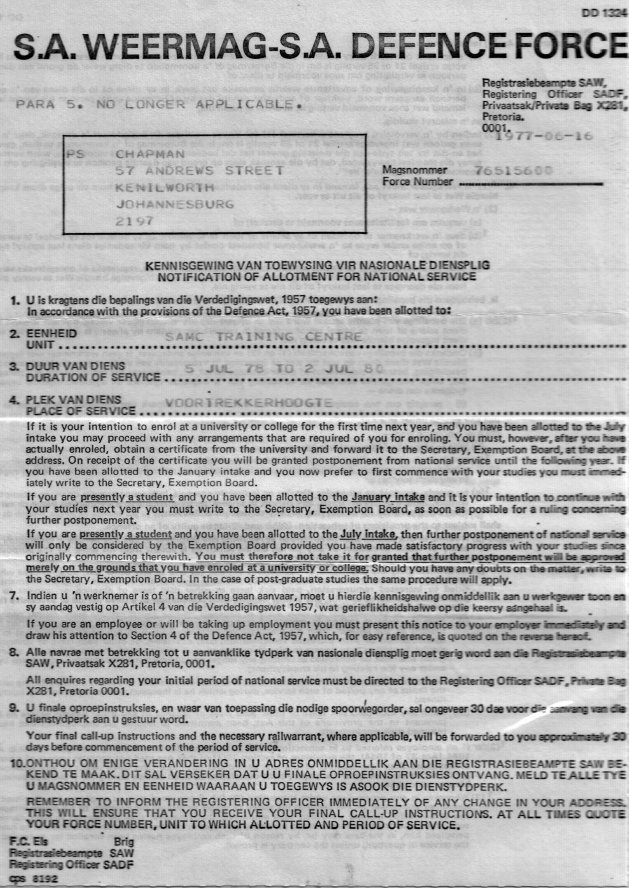
My Army call up papers, advising me when and where to report for my National Service.
in 1977 with the equivalent of a Standard Nine certificate. I started work at Barclays National Bank's City Deep Market branch in January 1978, and remained there for the six months prior to my call up date. Although some of my less fortunate friends, who had been called up in January 1978, considered me lucky to be able to work for these few months, thus starting a possible career, I actually envied them. They would be finished their two year service six months before I finished mine, and this was my overriding thought at the time. Get it over and done with!
The last week before we were to report was a hectic one, with my frazzled mother rushing around, trying to equip us with everything on a long list of `essentials' we had been led to believe we needed. This was from a list provided by the army, and included everything from a clothes iron to boot polish, toiletries, towels and the like. As it turned out, I didn't use half the junk that I took to the army with me. Chief among the throwaways was an electric razor my mother bought both David and I each. My beard was far too bristly and the razor failed to shave me cleanly, something I learned to do in a hurry once in the army, so I very quickly reverted to using a hand held razor and blades.
On 4 July my mother sent me off to the local photographic studio, to have a series of black and white portrait photographs taken, after which I had my long hair cut very short, in preparation for my military service. I had been advised to do this by friends already in the army, although why I bothered I don't know. The army cut my hair again anyway!
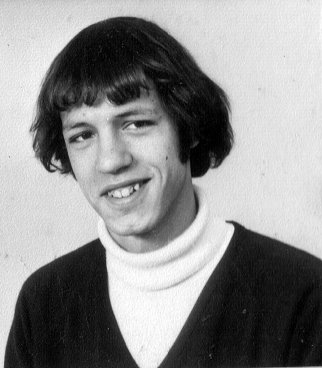
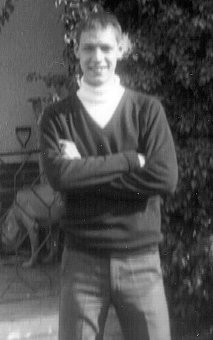
Hotlink to the Next Chapter.
Published at Sentinel: 24th July 2006.
Here is a shortcut back to
Sentinel Projects Home Page.
